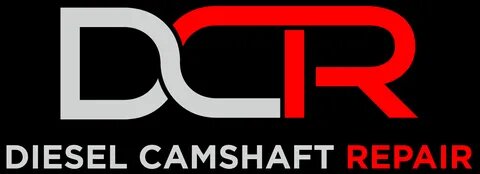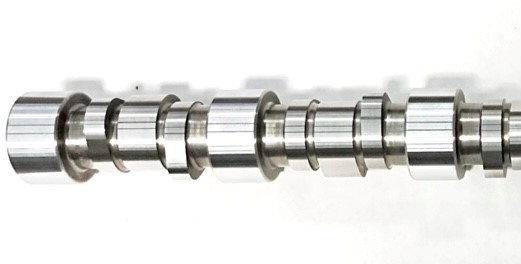Useful DIY Tips: Basic Maintenance and Care for Diesel Engine Camshafts
Diesel engines are renowned for their power, durability, and efficiency, making them a popular choice for a wide range of applications, from heavy-duty trucks to industrial machinery. At the heart of every diesel engine is the camshaft, a vital component that controls the timing and movement of the engine’s valves.
Proper maintenance and care of the camshaft are essential to ensure the engine runs smoothly, efficiently, and reliably. In this comprehensive guide, we’ll explore practical DIY tips for diesel engine owners on maintaining their camshafts to extend their lifespan and ensure optimal performance.
Understanding the Role of the Camshaft
Before diving into maintenance tips, it’s crucial to understand what the camshaft does. The camshaft is a rotating shaft within the engine that opens and closes the engine’s intake and exhaust valves in a precise sequence. This timing allows the engine to take in air and fuel and expel exhaust gases at the right moments. In diesel engines, where precise timing is critical for combustion and power, the camshaft plays a pivotal role in determining the engine’s overall performance.
Signs of Camshaft Problems
Recognizing the early signs of camshaft issues can save you from costly repairs down the line. Here are some common symptoms that indicate potential camshaft problems:
Tapping or Clicking Noises
Unusual noises coming from the engine, such as tapping or clicking sounds, can indicate worn camshaft lobes or lifters. These noises are often more noticeable when the engine is idling or under load.
Loss of Power
A worn or damaged camshaft can lead to a loss of engine power, reduced acceleration, and decreased fuel efficiency. If you notice a significant drop in performance, it’s worth checking the camshaft.
Misfiring
If the camshaft timing is off, it can cause the engine to misfire, resulting in rough running or hesitation during acceleration.
Engine Warning Light
Modern diesel engines are equipped with onboard diagnostics that can detect camshaft-related issues. If the engine warning light comes on, it’s advisable to have the engine checked for potential camshaft problems.
Excessive Smoke
A malfunctioning camshaft can lead to improper combustion, resulting in excessive smoke from the exhaust. This smoke may be black (indicating incomplete combustion) or white (indicating burning oil).
DIY Camshaft Maintenance Tips
Regular maintenance can help prevent camshaft problems and extend the life of your diesel engine. Here are some practical tips for maintaining your camshaft:
Regular Oil Changes
One of the simplest and most effective ways to maintain your camshaft is by performing regular oil changes. Engine oil lubricates the camshaft and other internal components, reducing friction and preventing wear.
Over time, oil can become contaminated with dirt, debris, and metal particles, which can accelerate camshaft wear. Follow your engine manufacturer’s recommended oil change intervals, typically every 5,000 to 7,500 miles, depending on the type of oil used and driving conditions.
Use High-Quality Oil and Filters
The quality of the oil and oil filters you use can significantly impact the longevity of your camshaft. Invest in high-quality synthetic or semi-synthetic oils that provide superior lubrication and thermal stability.
Additionally, use high-quality oil filters that can effectively trap contaminants and prevent them from circulating through the engine. Cheap or low-quality filters may not provide adequate filtration, leading to accelerated wear on the camshaft and other engine components.
Monitor Oil Levels and Pressure
Regularly check your engine’s oil levels and oil pressure to ensure they are within the recommended range. Low oil levels or insufficient oil pressure can lead to inadequate lubrication of the camshaft, causing increased friction and wear. If you notice a drop in oil pressure, investigate the cause immediately, as it could indicate a clogged oil filter, oil pump failure, or a more serious internal issue.
Inspection, Adjustments and Additives
Inspect the Camshaft and Lifters
Periodic inspection of the camshaft and lifters can help identify early signs of wear or damage. You can perform a visual inspection by removing the valve cover and examining the camshaft lobes and lifters.
Look for signs of pitting, scoring, or excessive wear on the camshaft lobes. If you notice any irregularities, it’s essential to address the issue promptly to prevent further damage to the engine.
Check and Adjust Valve Clearance
Proper valve clearance is crucial for the efficient operation of the camshaft and engine. Incorrect valve clearance can lead to poor valve timing, increased wear on the camshaft lobes, and reduced engine performance.
Refer to your engine’s service manual for the correct valve clearance specifications and use a feeler gauge to check and adjust the clearance as needed. This task may require specialized tools and knowledge, so consult a professional mechanic if you’re unsure.
Use Additives Wisely
Oil additives can enhance the lubricating properties of engine oil and provide additional protection for the camshaft. However, it’s essential to use additives specifically designed for diesel engines and follow the manufacturer’s recommendations. Avoid using excessive additives, as this can lead to sludge buildup and negatively affect engine performance.
Avoid Prolonged Idling
Prolonged idling can cause uneven wear on the camshaft and other engine components. When an engine idles for extended periods, oil pressure drops, and the camshaft may not receive adequate lubrication. To reduce camshaft wear, avoid excessive idling and turn off the engine if you’re going to be stationary for more than a few minutes.
Importance of Temperature, Fuel and Tuning
Maintain Proper Engine Temperature
Running your engine at the correct operating temperature is essential for camshaft longevity. Overheating can cause thermal expansion and increased wear on the camshaft and other engine components.
Ensure your cooling system is in good condition, regularly check coolant levels, and address any cooling system issues promptly. A properly functioning thermostat and radiator are critical for maintaining the engine’s temperature within the optimal range.
Use the Right Fuel
Using high-quality diesel fuel with the proper cetane rating can improve combustion efficiency and reduce the likelihood of carbon buildup on the camshaft and valves. Avoid using low-quality or contaminated fuel, as it can lead to incomplete combustion and increased wear on engine components. Consider using fuel additives that help clean and protect the fuel system and combustion chamber.
Pay Attention to Engine Tuning
Proper engine tuning and calibration are essential for maintaining the correct camshaft timing and valve operation. Ensure your engine’s electronic control unit (ECU) is properly programmed and up to date. If you’ve made modifications to your engine, such as installing a performance camshaft or turbocharger, consult a professional tuner to ensure the engine is tuned correctly for optimal performance and longevity.
When to Seek Professional Help
While DIY maintenance can go a long way in preserving your camshaft, some situations may require professional assistance. If you notice persistent camshaft-related issues, such as unusual noises, loss of power, or engine misfires, it’s advisable to consult a qualified diesel mechanic. A professional can perform a thorough inspection, diagnose the problem, and recommend the necessary repairs or replacements.
In Summary
Maintaining the camshaft of your diesel engine is crucial for ensuring its long-term performance and reliability. By following these DIY tips and practicing regular maintenance, you can extend the life of your camshaft, reduce the risk of costly repairs, and keep your diesel engine running smoothly.
Remember, a well-maintained camshaft contributes to the overall health of your engine, providing you with the power and efficiency you rely on for your daily operations. Whether you’re a seasoned diesel enthusiast or a first-time owner, taking care of your camshaft is an investment in the longevity and performance of your engine.

